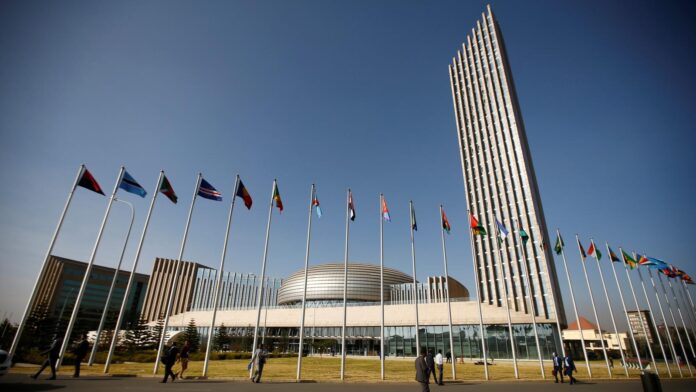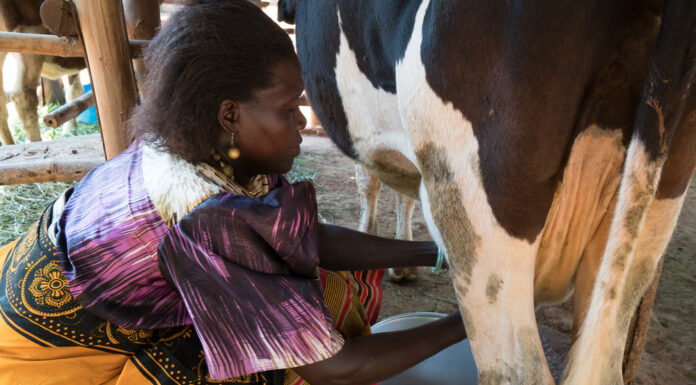Staff Writer
The Free Movement Protocol will be critical to securing gains from the game-changing African Continental Free Trade Area, David Luke, Coordinator of the African Trade Policy Centre (ATPC) at the Economic Commission for Africa has said.
In opening remarks to an IOM side event on Digitalizing Migration Response to harness Africa’s Economic Development and Demographic Dividend in the COVID-19 Era, Luke said the freedom of movement of people, capital, goods and services are the aspired four basic freedoms which make up the African continental and regional integration agendas.
He said this is why the Abuja Treaty establishing the African Economic Community, which was adopted by the Organization for African Unity in 1991, envisioned the “free movement of people and the rights of residence and establishment”.
“This represents the fifth phase of the Abuja Treaty which is expected to be realized by 2023,” Mr. Luke told delegates attending the event ahead of the on-going Conference of African Ministers of Finance hosted by the ECA.
The Protocol to the Treaty on the Establishment of the African Economic Community relating to Free Movement of Persons, Right of Residence and Right of Establishment was adopted in January 2018 together with a comprehensive implementation roadmap.
“Yet there has been a slow pace of signature and ratification of the protocol,” Luke said.
The protocol must be ratified by 15 Member States to enter into force. Only 32 Member States have signed the Protocol but only one, Rwanda, has ratified it.
Various reasons have been offered to explain the obstacles in the ratification of the Protocol, including the desire of States to maintain their sovereignty by having control over those who enter their territory; and a strong perception of security threats posed by free movement of persons, among others.
Luke said the concept of free movement of persons is often poorly understood.
“We must do better than this. Freer movement cannot depend only on the AfCFTA Protocol on Services that allows for movement in relation to investment and service delivery,” he said.
“True freedom of movement in Africa would instead allow African citizens to move to, live in, work, or provide a service or a business in another country on the continent, under the same or similar conditions as a citizen of that country.”
Moving forward, Luke said, there may be a need to redesign the Freedom of Movement Protocol to respond to concerns raised by policy makers to ensure that Africa’s people can benefit fully from the liberalized market that is being created by the AfCFTA.
This would also offer an opportunity to incorporate innovative solutions to the green and digital transitions within the Protocol.
Regional Economic Communities (RECs), which have faced their own challenges with ratification and implementation of Free Movement Protocols, have a role to play in promoting increased understanding of the free movement concept, he said.
“It is the free movement of people which will boost intra-African trade under the AfCFTA, and enable African countries to pro-actively and swiftly respond to the twin green and digital transitions we are faced with in the 2020s,” Luke said.
“We cannot afford to not build seamless borders for tomorrow’s Africa,” he said and proposed that the ATPC and IOM consider to jointly organize a series of awareness raising events on the Free Movement Protocol with the Government of Rwanda as a key partner.
As the only African country to have ratified the protocol, and as one of 11 African countries offering visa-free or visa-on entry to Africans, Rwanda is a pioneer of free movement on the continent, and can offer important lessons of experience for other countries, he added.
For his part, Jean-Denis Gabikini, the acting director of the Directorate of Economic Development Integration and Trade at the African Union Commission, said the continent was letting its youth down, resulting in increased migration.
“At least 60% of Africa’s population is aged below 24 years and its active contribution to economic growth which is reflected by increased incomes and development is not there,” Gabikini said.
“Instead of making the most of this dividend we are unable to offer jobs to our youth, forcing them to seek livelihoods elsewhere.”
The side event is part of the 53rd session of the Economic Commission for Africa Conference of African Ministers of Finance, Planning and Economic Development being held under the theme; Africa’s sustainable industrialisation and diversification in the digital era in the context of Covid-19. – Economic Commission for Africa








